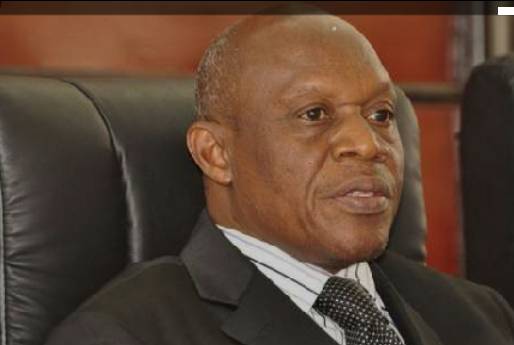In a landmark ruling, the Supreme Court of Ghana overturned a recent declaration by Speaker of Parliament Alban Bagbin, who had pronounced four parliamentary seats vacant. The ruling, issued on November 12, 2024, asserts that the Speaker's action was unconstitutional. Chief Justice Gertrude Torkornoo, leading the Supreme Court’s 5-2 decision, affirmed that the Speaker did not have the authority to declare the seats vacant, thus permitting the affected Members of Parliament (MPs) to return and fully participate in parliamentary proceedings.
Justice William Atuguba, a former Supreme Court judge, emphasized that Speaker Bagbin is legally bound by this decision, adding that failure to comply could lead to serious consequences, including contempt charges. Atuguba clarified that contempt of court in this context could result in a prison sentence of up to ten years and disqualification from holding public office for the same duration.
“This ruling requires strict adherence," Justice Atuguba stated in an interview with JoyNews. "If the Speaker or any other party disregards the Supreme Court’s directive, they risk serious punitive measures. Not only could they face imprisonment, but they would also be barred from public office for a decade.†He further noted that such a conviction could have severe implications for officeholders, potentially leading to the removal of even a president if implicated in such an offense.
Despite the ruling, differing opinions have emerged regarding the next steps for Parliament. Rockson-Nelson Dafeamekpor, MP for South Dayi, has argued that implementing the Supreme Court’s ruling should not rest solely on judicial authority but must involve parliamentary consensus. According to Dafeamekpor, Parliament, comprising all 275 MPs, must collectively deliberate on the court’s ruling to determine the practical steps for enacting it. "For the ruling to become binding in parliamentary practice," he said, "Parliament as a whole must endorse and give effect to it."
This stance highlights the evolving dialogue in Ghana’s legislative and judicial branches on issues of authority, checks, and balances. Dafeamekpor’s argument underscores a belief that Parliament operates as a sovereign body, which may need to play an active role in interpreting and implementing judicial rulings that directly affect its members.
Justice Atuguba, however, has stressed that while parliamentary deliberation is essential, the Supreme Court’s decision is clear and unequivocal, leaving no room for deviation. The Supreme Court’s ruling represents a reaffirmation of judicial oversight, particularly in cases where constitutional boundaries may have been exceeded by other branches of government. For Justice Atuguba, the ruling underscores a crucial tenet of Ghana’s democracy: that the judiciary serves as the ultimate interpreter of the Constitution and holds the final word on matters of constitutional compliance.
This case not only brings to the forefront the legal limits of the Speaker’s powers but also raises broader questions about parliamentary sovereignty and the role of the judiciary in checking executive and legislative overreach. As Parliament considers the implications of this ruling, the path forward could set significant precedents in the relationship between Ghana’s judiciary and legislative branches.
With this decision, the four MPs whose seats were previously declared vacant can now resume their roles, reaffirming the principle that democratic mandates cannot be rescinded without constitutional backing. Whether Parliament will take additional steps to formally endorse the Supreme Court’s ruling or allow it to stand as binding without further legislative action remains to be seen.
This case may well serve as a crucial reference point for future interactions between Ghana’s judiciary and Parliament, underscoring the critical balance between respect for judicial authority and the legislative body's role in governance.
Source: MyJoyOnline November 12, 2024



No comments yet
Be the first to share your thoughts!